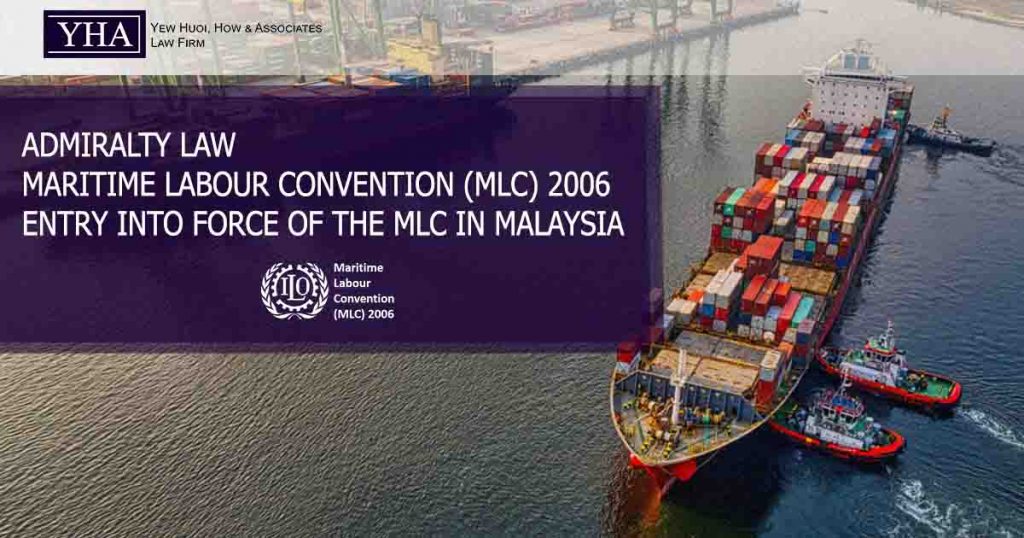The MLC 2006 consolidates 68 international maritime labor legal instruments and recommendations of the International Labor Organization (ILO).
Q: What is the purpose of the MLC 2006?
- Codifies seafarers’ rights together with health, safety and employment standards.
- It establishes an enforcement and monitoring mechanism for the protection of seafarers ‘rights.
Q: Has Malaysia ratified the MLC 2006?
- Malaysia ratified the MLC 2006 on the 20th of August 2013. Following the ratification, the Merchant Shipping Ordinance (MSO) 1952 was amended pursuant to the MSO (Amendment) Act 2016, the 2016 Act aimed to align the provisions set forth in the MSO 1952 with the requirements imposed under the MLC 2006.
Q: What are the amendments introduced under the MSO (Amendment) Act 2016?
- Manning and qualification, ensures ships have the necessary volume and professionally ascertained seafarers’ when conducting the voyage.
- Conditions of service, creates enforceable rights and obligations between seafarers and their employers.
- Wages
- Health
- Accommodation and Provisions
- Conduct and discipline
Q: Who must comply to these amendments?
- Owners
- Seafarers’
- Ships
Q: Is proper enforcement in place for the amendments under the MSO (Amendment) Act 2016?
- The Malaysian Shipping Notice issued by the Maritime Department of Malaysia, practices the Declaration of Maritime Labour Compliance (DMLC). Shipowners are required to indicate their compliance with the MLC.
- The Maritime Department of Malaysia have went to strenuous lengths to incorporate the MLC into the domestic shipping scene in the country. However only with the continued support of seafarers, masters and owners can Malaysia steer herself towards the port of compliance to the MSO 1952.

